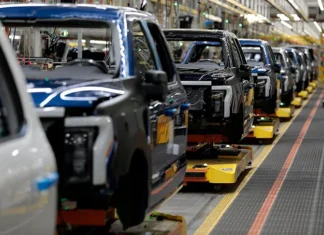
Since 2016, one Black-run nonprofit, Support Our Urban Landscape, or SOUL, has been the driving force behind restoring New Orleans’ tree canopy, which was decimated by Hurricane Katrina. But because it’s a Black organization in a Black city, the $3.5 million in funding SOUL was set to receive from the Inflation Reduction Act — amounting to 80% of its operating budget for the next five years — has evaporated as part of the Trump Administration’s war on diversity, equity, and inclusion initiatives.
While the 20th anniversary of Hurricane Katrina making landfall in New Orleans is coming up this August, there are still many ways in which the city continues to feel the effects of the long-gone storm — especially on the many sun-baked blocks in poorer and Blacker neighborhoods that lack trees almost completely.
Although the thought of New Orleans can recall romantic images of massive moss-draped Live Oaks, much of the urban canopy was wiped out by Katrina, which killed 200,000 trees, if not more. Today, just 18.5% of the city has tree cover, down from around 30% prior to 2005 (which was still low compared to other Southern cities comparable in size).
The sparse urban forest is a major contributing factor to New Orleans’ dramatic urban heat-island effect, which makes the city 9 degrees hotter, on average, than surrounding areas, with some areas running up to 16 degrees hotter.
Now, instead of planting 5,000 trees across the Lower 9th Ward, Little Woods, Hollygrove, and Pilotland/St. Bernard, SOUL says that it will have to cease operations by April 15 if it cannot find a new source of funding.
SOUL’s lost award was part of a larger tranche of IRA money that was granted by the U.S. Forest Service to the Arbor Day Foundation, which in turn was doling out grants to local organizations like SOUL. In all, there was $1.5 billion earmarked for urban and community forestry in the Biden-era climate bill, and $35 million of that was set to pass through Arbor Day to 105 organizations across the country, from Alaska to Maine to New Orleans.
But as the Trump Administration continues to cut grants left and right, that money has now effectively disappeared. An email sent by the Forest Service on February 14 announcing that the Arbor Day grant was being cancelled read, in part, that the award “no longer effectuates agency priorities regarding diversity, equity, and inclusion programs and activities,” according to the Associated Press.
Some of the canceled Arbor Day funds would have gone toward projects in rural, conservative areas, like eastern Oregon. But while planting trees in New Orleans could perhaps be described as “DEI,” and would certainly meet the Justice40 standard that existed under the Biden Administration, the best way to describe it, really, is good climate policy.
Not only will trees provide shade, which can quite literally save lives, but an expanded canopy will also give New Orleans all sorts of other ecosystem services (as the benefits that nature provides to humans by simply existing are called).
RELATED: More Cities Address ‘Shade Deserts’
Other ecosystem services provided by trees that are vital for New Orleans include water retention and flood control — soil that is shot through with tree roots can absorb much more water than when trees are not present — and they can help to slow the rate of subsistence in the city too.
Trees cannot completely take the place of bigger climate resiliency infrastructure in a city like New Orleans, with its precocious perch below the mouth of the Mississippi River. But their ecosystem services can help ease some of the burden, and at a comparatively low cost.
But because New Orleans is 59% Black, and planting trees there could help the city’s Black community, that funding is now gone.



